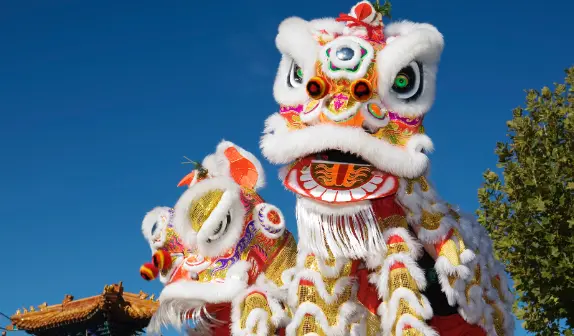What Does Gung Hay Fat Choy Mean? One more year: Now that the Gregorian one is over, the sounds of Chinese New Year celebrations can be heard: firecrackers, dragon dances, the beauty contest, the fashion show, the grand parade, and, of course, people exchanging the ever-popular “Gung Hay Fat Choy.”
There’s no doubt that the Chinese like to say it a lot. But people who don’t speak Chinese are also getting it. Dianne Feinstein, who used to be mayor of San Francisco, said it with the style of a native speaker. It was heard that Bob Hope said it with the cutest accent. But what exactly does Gung Hay Fat Choy mean?
The exact translation of the greeting is “Congratulations on getting rich.” The greeting is one of congratulations. This is something that people who speak the language may not know.
The American Heritage Dictionary says that a “congratulation” is a way to show appreciation for something that has already been done.
What Does Gung Hay Fat Choy Mean?
Gung Hay Fat Choy is more than just a wish, a hope, or a belief. It assumes that you already have everything you want, for which you should be praised. So, it stands to reason that you should be pretty well off.
But the old compliment doesn’t end there. A child who says “Gung Hay Fat Choy” to you may sometimes joke that you should “come across with lai see” (money in red envelopes).

I used to think that kids are just kids, and that they might still be in the Halloween spirit. But it surprises me that sometimes adults also want lai see for Gung Hay Fat Choy. Since adults don’t usually go trick-or-treating like kids do, their playfulness can only be a sign of more grown-up ways.
In any case, I’ve come to believe that everyone, kids and adults alike, only cares about one thing: money. But why is Gung Hay Fat Choy a sign that money is coming? If you looked at the attitude behind the greeting, you might find a side comment like, “Now that you’ve made it, and I’m happy for you, I’m sure you wouldn’t mind cutting me a few bucks.”
Exploitative? Underhanded? Some people have said it’s possible, but this happy New Year’s tradition has been going on for hundreds of years. People give the red envelope to their kids without any hidden agendas.
People who are married or who just go with the flow will have a lot of lai see to share with their families, friends, and other acquaintances. Of course, kids usually benefit the most. Young adults give to their children and, in turn, get things from older people. When a group of friends gets together, a rich and generous partygoer may get so into the spirit of things that he gives money or gifts to anyone in the group.
How much money is in the red envelope depends on who gives it. You might get a dollar or two, a five, a ten, or even a twenty once in a while, but rarely hundreds.
You’ll never know for sure until you get an envelope and open it. A word of warning for first-timers: if you’re used to opening your Christmas gifts right away, you shouldn’t do it with your lai see. People think that lai see is a sign of good luck and friendship. In a traditional setting, these values should always come first. Keeping the envelopes whole in front of your elders is a sign of respect and will add to the New Year’s mood.
Those who enjoy the spirit of the tradition know that it’s not just about the money. For them, what matters is the feeling of the new year. It doesn’t matter if they are rich or not; they want to believe that they are rich no matter what.
So, it makes them feel good when their kids, friends, and family say nice things about them. When they give lai see to their children with joy, they give themselves a sign that they are doing well.
As long as this New Year’s tradition is kept up with the wisdom of Gung Hay Fat Choy, kids will always get a little more money in their pockets at the start of the year.
They use the money to play games and save the money in piggy banks. The adults will always help them feel like things are going well, and their hopes and dreams will continue to grow in the rich and comforting atmosphere of a fresh start.
Even though Asian and Western ideas don’t always match up, I think they agree on prosperity. Material things don’t mean much if your health and safety aren’t taken care of.
In traditional Chinese culture, it is important to have children who will carry on after you. This is because prosperity also means having children.
A person also needs to be in good health and get along well with his friends and family so that he can share his happiness and sadness with them. All of these, along with intelligence, creativity, spirituality, a sense of humor, and the right frame of mind, are needed to fully understand what it means to be prosperous. How does a person who has all the money in the world but no friends or family and is sick in body, mind, and spirit really do well?
